Politics
White House takes tariffs fight to US Supreme Court
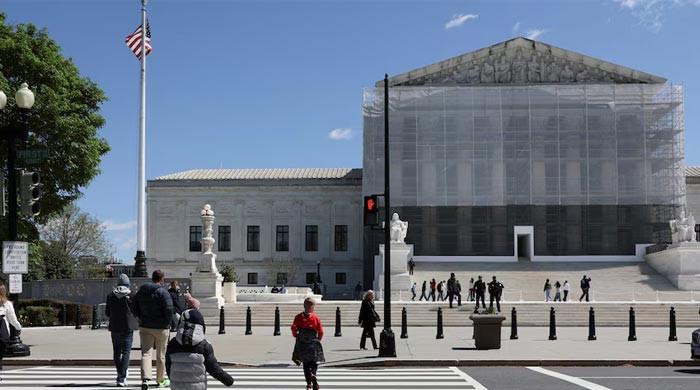
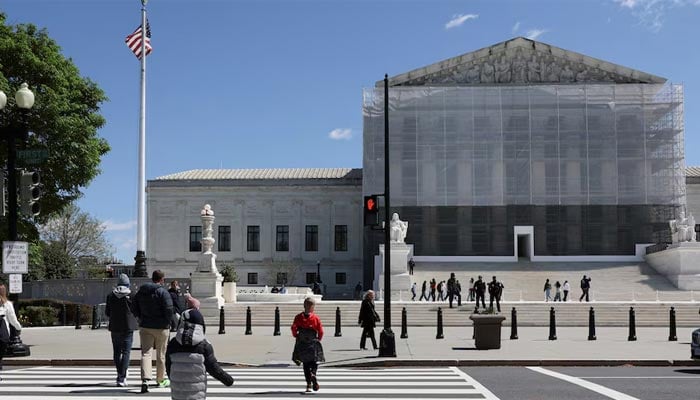
- Court says Trump exceeded powers in enacting tariffs.
- Trump cites longstanding US trade deficit as emergency.
- Tariffs remain in effect during appeal to Supreme Court.
Donald Trump’s administration asked the US Supreme Court on Wednesday to hear a bid to preserve his sweeping tariffs pursued under a 1977 law meant for emergencies, after a lower court invalidated most of the levies central to the Republican president’s economic and trade agenda.
The Justice Department appealed an August 29 ruling by a federal appeals court that the president overstepped his authority in invoking the law known as the International Emergency Economic Powers Act, undercutting a major Trump priority in his second term.
The tariffs currently remain in effect as the appeals court paused its order to give the administration time to seek Supreme Court review.
The Justice Department asked the Supreme Court to decide by September 10 whether it would hear the case. The Justice Department also proposed an accelerated timetable for resolving the litigation, with oral arguments in the first week of November, just a month after the start of the court’s 2025-2026 term.
Lawyers for small businesses challenging the tariffs are not opposing the government’s request for a Supreme Court hearing. One of the attorneys, Jeffrey Schwab of Liberty Justice Center, said in a statement they were confident they would prevail.
“We hope for a prompt resolution of this case for our clients,” Schwab said.
The levies are part of a trade war instigated by Trump since he returned to the presidency in January that has alienated trading partners, increased volatility in financial markets and fueled global economic uncertainty.
Trump has made tariffs a pillar of US foreign policy, using them to exert political pressure and renegotiate trade deals and extract concessions from countries that export goods to the United States.
The litigation concerns Trump’s use of IEEPA to impose what Trump calls “reciprocal” tariffs to address trade deficits in April, as well as separate tariffs announced in February as economic leverage on China, Canada and Mexico to curb the trafficking of fentanyl and illicit drugs into the US.
IEEPA gives the president power to deal with “an unusual and extraordinary threat” amid a national emergency and had historically been used for imposing sanctions on enemies or freezing their assets. Prior to Trump, the law had never been used to impose tariffs.
Trump’s Department of Justice has argued that the law allows tariffs under emergency provisions that authorise a president to “regulate” imports or block them completely.
The appeals court ruling stems from two challenges, one brought by five small businesses that import goods, including a New York wine and spirits importer and a Pennsylvania-based sport fishing retailer. The other was filed by 12 US states — Arizona, Colorado, Connecticut, Delaware, Illinois, Maine, Minnesota, Nevada, New Mexico, New York, Oregon and Vermont — most of them governed by Democrats.
The Constitution grants Congress, not the president, the authority to impose taxes and tariffs, and any delegation of that authority must be both explicit and limited, according to the lawsuits.
The US Court of Appeals for the Federal Circuit in Washington, DC, agreed, ruling that the president’s power to regulate imports under the law does not include the power to impose tariffs.
“It seems unlikely that Congress intended, in enacting IEEPA, to depart from its past practice and grant the President unlimited authority to impose tariffs,” the appeals court said in its 7-4 decision.
The appeals court also said that the administration’s expansive view of IEEPA violates the Supreme Court’s “major questions” doctrine, which requires executive branch actions of vast economic and political significance to be clearly authorised by Congress.
The New York-based US Court of International Trade, which has jurisdiction over customs and trade disputes, previously ruled against Trump’s tariff policies on May 28.
Another court in Washington ruled that IEEPA does not authorise Trump’s tariffs, and the government has appealed that decision as well. At least eight lawsuits have challenged Trump’s tariff policies, including one filed by the state of California.
The administration’s appeal comes as a legal fight over the independence of the Federal Reserve also seems bound for the Supreme Court, setting up a potential legal showdown over Trump’s entire economic policy in the months ahead.
Politics
Dubai prepares for unprecedented New Year’s Eve celebration

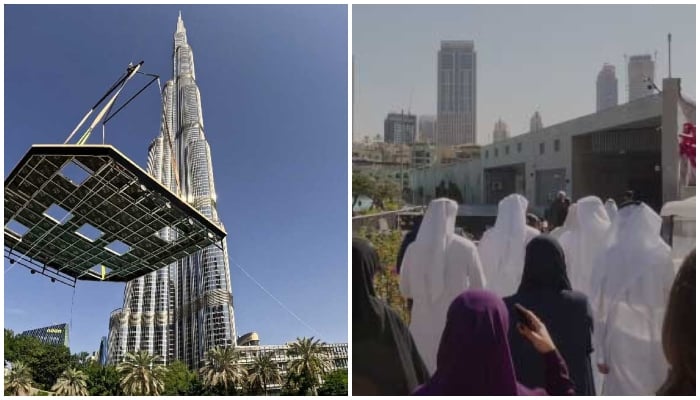
DUBAI: Preparations for the highly anticipated New Year’s Eve celebration in Dubai are in full swing, with plans for an extraordinary display to mark the arrival of 2026.
The spotlight will once again fall on the iconic Burj Khalifa, the world’s tallest building, where preparations for an awe-inspiring fireworks show are already underway.
In a sign of the scale of the event, Dubai Mall is also getting ready to dazzle with a spectacular light display, set to complement the grand fireworks at the Burj Khalifa.
Mohammed Al Abbar, the Emirati businessman whose construction company built the world’s tallest building, the Burj Khalifa, and the iconic Dubai Mall, is personally supervising the preparations for this year’s New Year’s Eve celebration.
Al Abbar shared a behind-the-scenes video on the social media platform X, offering a glimpse into the monumental efforts underway ahead of the grand event.
Politics
Syria to start currency swap on January 1, says central bank governor
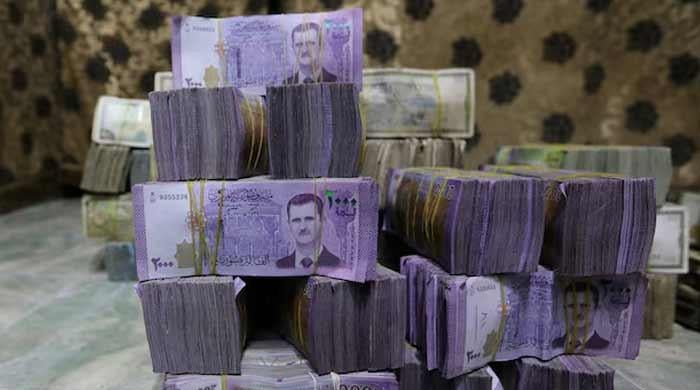
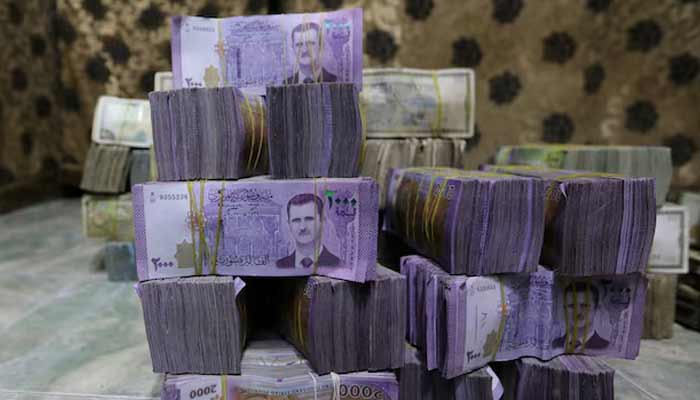
Syria will start swapping old banknotes for new ones from January 1, 2026, Central Bank Governor Abdelkader Husrieh said on Thursday, under a plan to replace Assad-era notes to try to strengthen the currency’s value.
Syria’s new government, led by Syrian President Ahmed al-Sharaa, is seeking to rebuild state institutions and revive the economy after more than a decade of war, sanctions and financial isolation that left the local currency severely weakened.
“The central bank has been given authority to decide the deadline for the swap and its locations,” Husrieh said, adding the bank would issue instructions.
Sources familiar with the matter told Reuters in August that the country will issue new banknotes, removing two zeros from its currency to try to restore public confidence in the severely devalued pound.
Some bankers have voiced fears that the new currency could drive up inflation and further erode the purchasing power of Syrians reeling from high prices, but Husrieh said the operation will take place through a smooth and orderly swap.
He added that a press conference will be held on December 27 to “explain all the details of the replacement process and deadlines”.
Assad fled Syria in December 2024 for Russia after rebels seized Damascus following an eight-day blitz through the country, ending six decades of his family’s autocratic rule, more than 13 years after an uprising had spiralled into civil war.
Syria marked earlier this month the first anniversary of the overthrow of Bashar al-Assad with jubilant celebrations in major cities.
Politics
Tajik forces ‘kill three terrorists’ after border infiltration from Afghanistan
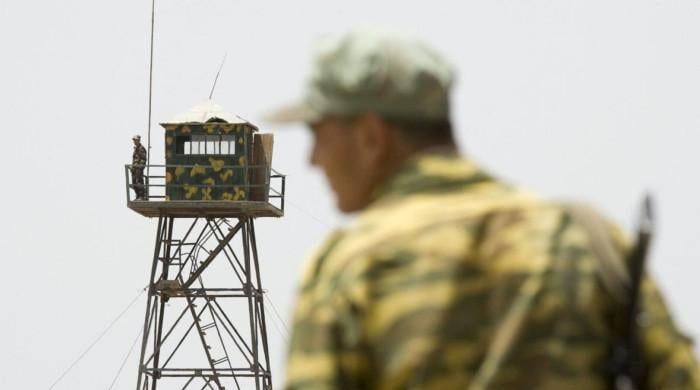
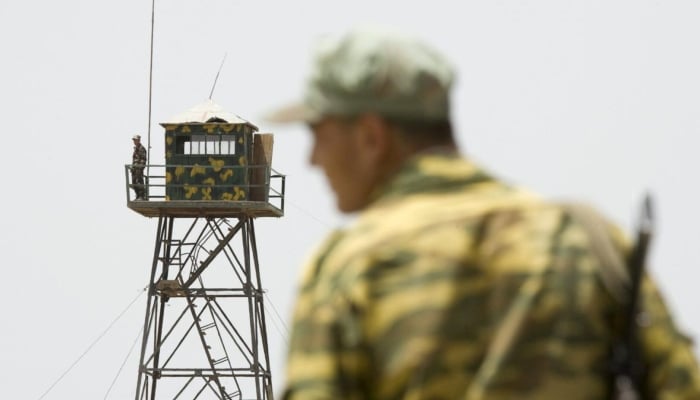
- Militants crossed from Afghanistan, resisted orders.
- Weapons, explosives, recovered from attackers.
- Two Tajik border personnel also killed in operation.
Tajik security forces killed three armed militants who crossed into the country from Afghanistan and refused to lay down their weapons.
In a statement, Tajikistan’s Press Centre of the Border Troops of the State Committee for National Security said that the incident took place on December 23.
“They intended to carry out an armed attack on one of the border outposts of the Border Troops of the State Committee for National Security of the Republic of Tajikistan,” it added.
Tajik security forces swiftly identified the militants’ location and ordered them to surrender. However, they offered armed resistance, leading the forces to kill all three militants in a combat operation, read the statement.
Tajik forces also recovered firearms, including an M-16 rifle, a Kalashnikov assault rifle and three foreign-made pistols equipped with suppressors, ten hand grenades, one night-vision device, explosives, and other military equipment, from the killed militants.
During the fire exchange, two Border Troops personnel were also killed.
The Press Centre of the Border Troops noted that it was the third incident involving an armed attack following illegal border-crossing from Afghanistan into Tajikistan over the past month.
The Central Asian country assailed the Afghan Taliban regime’s failure to prevent terrorist outfits from using its soil for launching terrorist attacks into its neighbouring countries.
The incident comes weeks after five Chinese nationals were killed and five more injured in attacks launched from Afghanistan.
Tajik authorities and China’s embassy in the country said that the Chinese citizens were targeted in armed and drone attacks.
Following the deadly attacks, China’s embassy in Dushanbe, the capital, advised Chinese companies and personnel to urgently evacuate the border area.
Pakistan has repeatedly invited global attention to increased terrorist safe havens in Afghanistan since the Afghan Taliban returned to power in 2021.
Islamabad has lost nearly 1,200 lives this year alone in terrorism linked to networks based in Afghanistan, Pakistan’s permanent representative to the UN, Ambassador Asim Iftikhar Ahmad, said earlier this month.
Pak-Afghan tensions
The issue of cross-border terrorism escalated after the Afghan Taliban and militants launched unprovoked attacks against Pakistan’s border posts on the night between October 11 and 12.
The clashes led to the killing of over 200 Taliban and affiliated militants, while 23 Pakistani soldiers laid down their lives defending the motherland.
Pakistan also conducted “precision strikes” deep inside Afghanistan, targeting terrorist safe havens in Kandahar province and Kabul.
A temporary 48-hour ceasefire was announced on October 15 at Afghanistan’s request, with the two sides eventually reaching an official ceasefire agreement on October 19 in Qatar in talks mediated by Doha and Turkiye.
Under the deal, terrorism from Afghanistan on Pakistani soil should have stopped immediately, with Islamabad and Kabul agreeing to establish mechanisms to consolidate lasting peace and stability between the two countries.
However, the following talks in Turkiye collapsed after Islamabad refused to accept the Afghan Taliban delegation’s “illogical” arguments and refusal to address Islamabad’s concerns regarding cross-border terrorism.
However, mediators persuaded Pakistan to give the talks another chance, which ultimately resulted in an agreement to uphold the ceasefire.
-

 Fashion1 week ago
Fashion1 week agoIndonesia’s thrift surge fuels waste and textile industry woes
-

 Tech1 week ago
Tech1 week agoT-Mobile Business Internet and Phone Deals
-

 Business1 week ago
Business1 week agoBP names new boss as current CEO leaves after less than two years
-

 Sports1 week ago
Sports1 week agoPKF summons meeting after Pakistani player represents India in kabaddi tournament
-
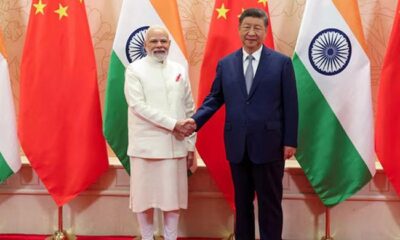
 Entertainment1 week ago
Entertainment1 week agoIndia streamlines visa rules in boost for Chinese professionals
-

 Sports1 week ago
Sports1 week agoUWCL grades for all 18 teams: Leuven get A+; Barça an A-, PSG fail
-
Sports5 days ago
Alabama turned Oklahoma’s College Football Playoff dream into a nightmare
-

 Entertainment1 week ago
Entertainment1 week agoRadiation fears rise after cracks found in $2 billion Chernobyl shield






